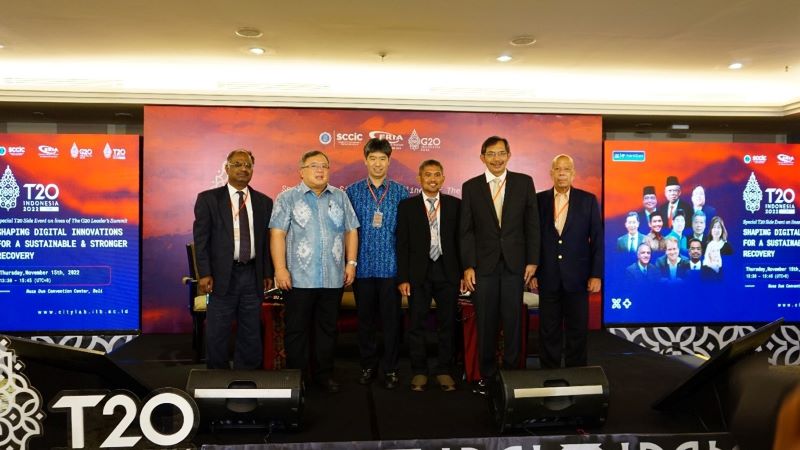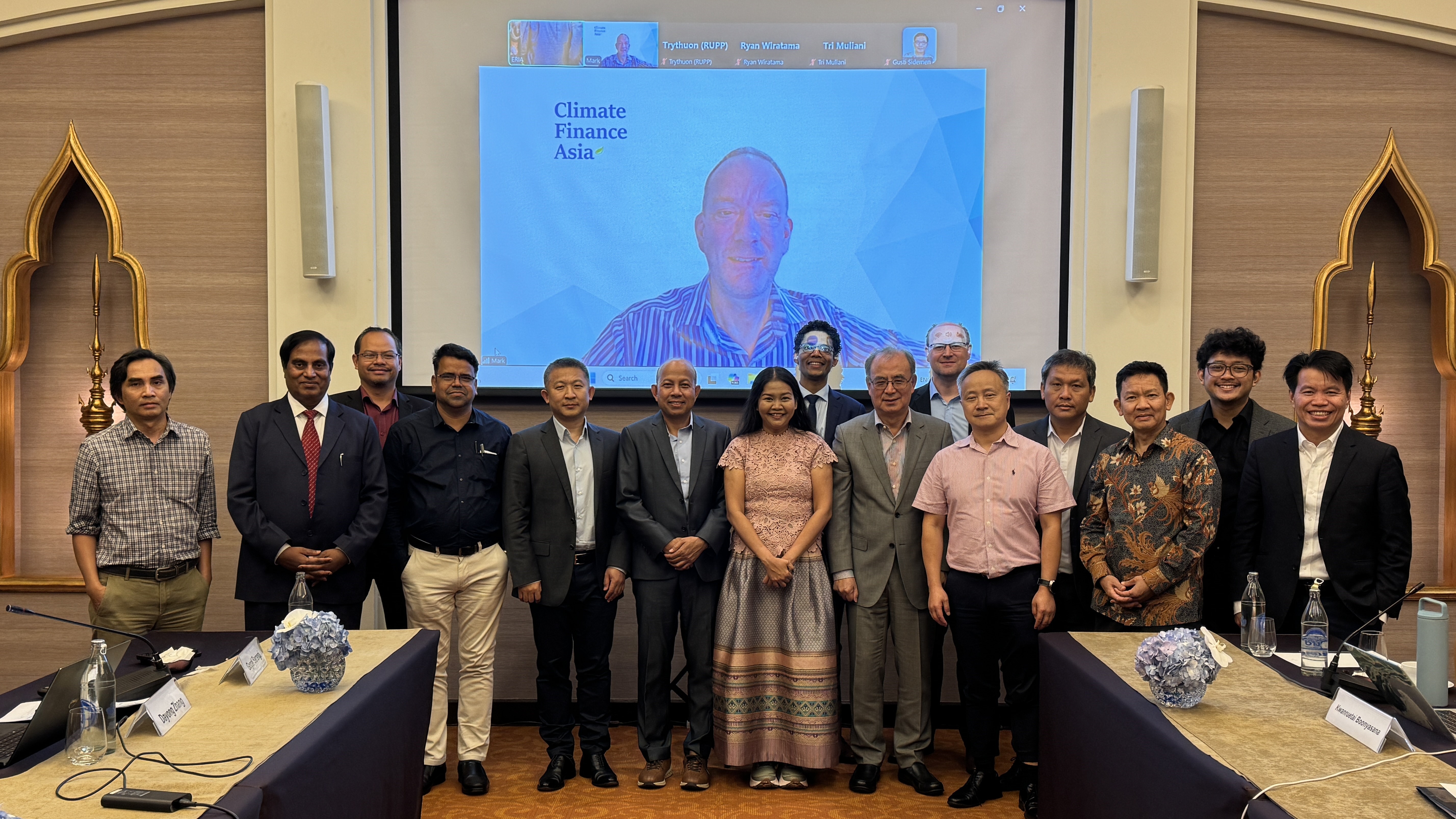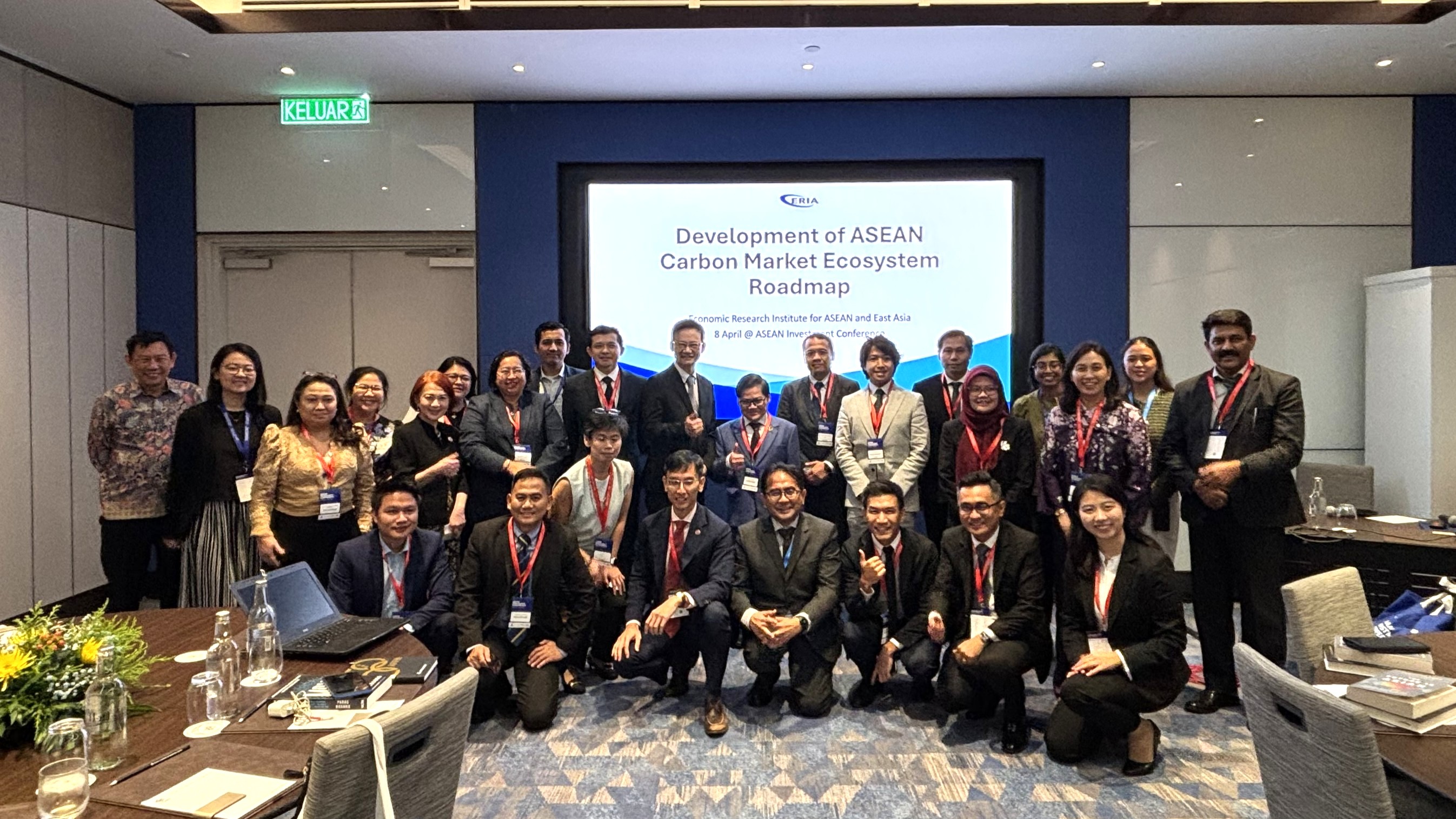Issues on Inclusiveness of Digital Transformation Worry Experts
Date
15 November 2022Category
OthersShare Article:
Print Article:
Bali, 15 November 2022: The adoption and use of digital technologies and the speed of transformation that vary amongst Group of Twenty (G20) economies by demographic categories, industries, and firm sizes are raising concerns about the inclusiveness of the digital transformation. This issue was raised during a special side event of the G20 Leaders’ Summit held on 15 November 2022 in Bali, Indonesia. The event, with the theme Shaping Digital Innovations for a Sustainable and Stronger Recovery, was organised by the Smart City and Community Innovation Center (SCCIC) in cooperation with the Institute of Technology Bandung (ITB) and the Economic Research Institute for ASEAN and East Asia (ERIA).
During three rounds of moderated discussions led by Dr Venkatachalam Anbumozhi, ERIA’s Director of Research Strategy and Innovations and a Co-Chair of T20 -Task Force (TF2), a panel of experts discussed the transformative potentials and barriers of digitalisation. These barriers typically include some combination of lack of high-quality and affordable infrastructure, lack of trust in digital technologies and activities, shortage of skills needed to succeed in the digital economy, more reactive than proactive approach to the openness of the internet, roadblocks to trade services, high costs and poor access to financing for smaller firms, reallocation of resources across firms and sectors, and lack of interoperability of standards.
According to the panellists, the growing number of digital strategies established by developed and emerging economies shows the relevance of a whole-of-government approach to address issues coherently. The panel proposed several ideas to resolve issues in for quality of life. It recommended the support of G20 leaders to adopt best practices and policies that will enable all relevant actors, including small and medium-sized enterprises, to work together more effectively to help foster an interoperable environment in support of sustainable and inclusive growth.
The other members of the panel were Prof Bambang Permadi Soemantri Brodjonegoro, Lead Co-Chair of Think 20 and former Minister of Research and Technology, Government of Indonesia; Prof Suhono Harso Supangkat, Lead Co-Chair of Task Force 2 and Head of Smart City and Community Innovation Center (SCCIC); Mr Rajan Natarajan, CEO of PT Business Intelligence Technologies; Dr Cyn-Young Park, Director of Economic Research and Regional Cooperation Department of the Asian Development Bank; Prof. Toshio Obi, Co-Chair of Task Force 2 - T20 Indonesia, Director of APEC Digital Government Research Center, and Professor Emeritus of Waseda University; and Mr Nicolas J.A. Buchoud, Advisor to the Dean and to the T7 Japan, Asian Development Bank Institute, Tokyo, and Fellow, Global Solutions Initiative, Berlin.
Ms Lydia Ruddy, ERIA’s Director of Communications, acted as the master of ceremony.
Prior to the panel discussion, Mr Koji Hachiyama, ERIA’s Chief Operating Officer, in his welcome remarks, said that digital connectivity would widen the coverage of supply chain of goods and services in rural areas. He added that it allows people living anywhere to access the global labour market; connect people to people; and address issues of communication, social online learning, and businesses. He also announced that in 2023, ERIA will establish the Centre for Digital Innovation and Sustainable Economy. This centre, he said, will be a virtual and physical platform for policymakers, businesses stakeholders, and academic professionals as well as organisations that are committed to collaboratively generate, manage, and share knowledge on the transition to a digitally driven sustainable economic growth. He added that the centre will significantly contribute to maximising the transformative potentials of digitalisation in the region.
In his opening remarks, Prof Taufan , Head of ITB’s Science and Technology Development, said that ITB fully supports digital innovation products by research centres, including the Smart City Living Lab, and smart agriculture and farming application that have impacts on the economy and society.
Joining online, Prof Sachin Chaturvedi, Director General of the Research and Information System for Developing Countries in New Delhi, emphasised the importance of digitalisation of finance, trade, infrastructure, and governance. He said digitalisation would bring advantages to global digital transactions, including the emerging financial technology and start-ups. He added that digital innovations could strengthen governance systems through their regulators and secure citizens’ privacy.
The event was also attended in person by the Head of the Community and Village Empowerment Office (Dinas DPMD) West Java, and representatives from Business 20, Women 20, Youth 20, and Udayana University in Bali. More than 100 participants joined online through Zoom and YouTube live stream.








